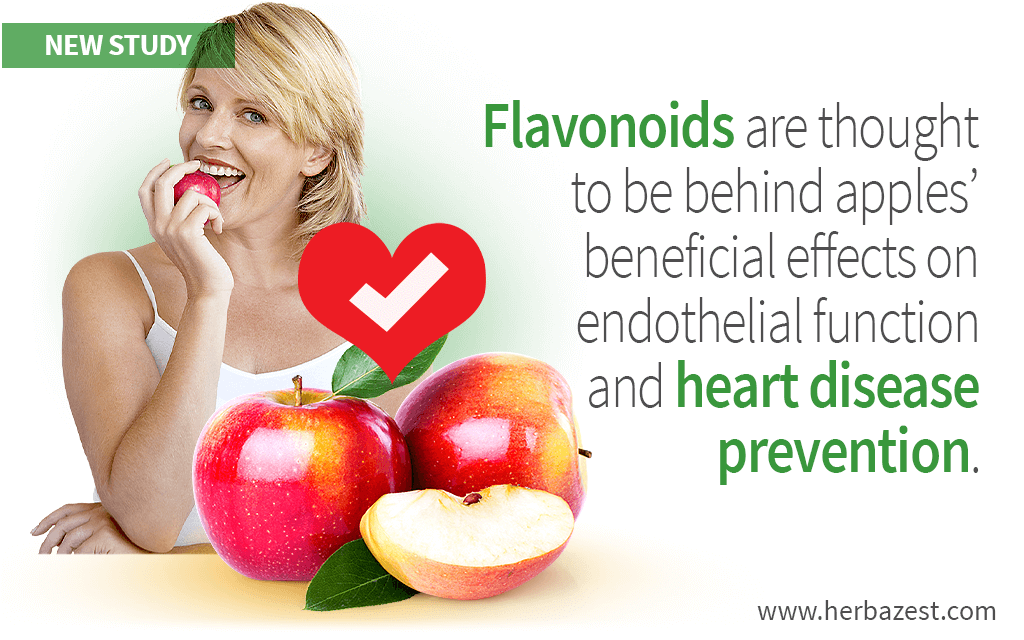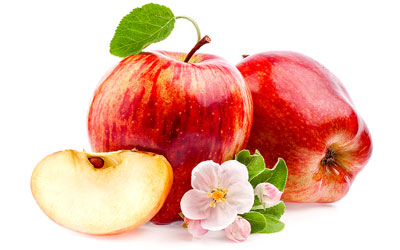Endothelial cells line the heart and blood vessels, controlling vascular relaxation and contraction, blood clotting control, and immunity, among others.1 Improper endothelial function is considered one of the precursors to cardiovascular disease (CVD) and other associated risks, such as high blood pressure (BP), atherosclerosis, and stroke.2
Thanks to their rich flavonoid content, apples are widely known for being a healthy addition to a daily diet. Various studies investigated their effects on human health, including their role in disease prevention.3 Yet there haven't been many conclusive studies on apples' effects on heart health, more specifically endothelial function.
This study was conducted to determine if eating flavonoid-rich apples could reduce CVD risk by improving endothelial function, lowering blood pressure, and reducing arterial stiffness.
The Study
The trial was conducted by researchers from the University of Western Australia in Perth, Australia. Their results were published in the Molecular Nutrition & Food Research journal.
This was a randomized cross-over intervention study on 30 adults with at least one risk factor for cardiovascular disease (CVD), including high BP, elevated blood sugar, high cholesterol, or central obesity.
After being assigned to two groups, participants were given one of two treatments twice a day for four weeks:
High-flavonoid apple group: a drink made with water blended with one whole Cripps Pink apple plus the skin of another Cripps Pink apple
Low-flavonoid apple group: a drink made with water blended with the flesh (without the skin) of one Cripps Pink apple
Participants were instructed to reduce their consumption of flavonoid-rich foods (e.g. tea, red wine) two weeks before and during the study. Necessary medical assessments were taken before, during, and after the trial.
The Results
Researchers observed a significant improvement in endothelial function indices in the high-flavonoid apple group.
Blood concentration of quercetin and isorhamnetin (types of flavonoids) substantially increased (about 16 times) in participants consuming high-flavonoid apples.
There were no noteworthy changes in arterial blood pressure in either of the groups.
What Does this Mean?
This study provides initial evidence that eating flavonoid-rich apples can improve endothelial function, thus helping decrease the odds of developing cardiovascular disease.
Researchers suggest that these heart-beneficial properties are most probably due to that fact that flavonoids can improve bioavailability of nitric oxide, a molecule known to regulate vascular tone. They encourage further studies to better understand the effects of eating apple on improving cardiovascular health.
Other heart-healthy herbs worth adding to one's diet are walnuts, cacao, spinach, flax, and blueberries.
Sources
- Molecular Nutrition & Food Research, Flavonoid-Rich Apple Improves Endothelial Function in Individuals at Risk for Cardiovascular Disease: A Randomized Controlled Clinical Trial, 2017
Footnotes:
- Cedars Sinai. (n.d.). Endothelial Function Testing. Retrieved November 2, 2020 from https://www.cedars-sinai.org/programs/heart/clinical/womens-heart/services/endothelial-function-testing.html
- Global Cardiology Science & Practice. (2014). Endothelial dysfunction and cardiovascular disease. Retrieved October 9, 2020 from https://www.ncbi.nlm.nih.gov/pmc/articles/PMC4352682/
- Harvard T.H. Chan. (n.d.). Apples. Retrieved October 9, 2020 from https://www.hsph.harvard.edu/nutritionsource/food-features/apples/





